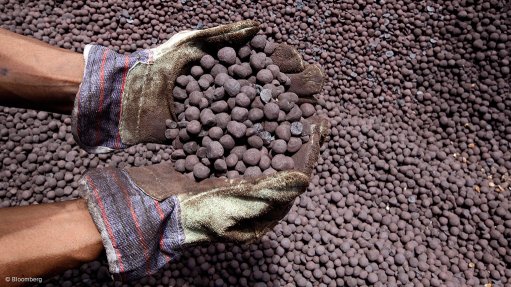The danger of an underdog becoming a top dog
Nestled on the southern part of the Iberian Peninsula, but not quite at its tip, is a country – a British overseas territory or self-governing territory – well, not according to the United Nations, but that is a story for another day. Some call it an island, which it was not not so long ago, but the reclamation of land from the sea has connected it to the Peninsula.
It is a territory of 33 140 inhabitants – Gibraltarians – and has remained British against all odds, including many sieges, and desperately wants to remain that way. It is a territory that has had to overcome significant military odds over the centuries. It is smaller than most British towns and has an area of 6.7 km2, dominated by a 426-m-high limestone from which it derives its nickname, The Rock. It is one of the most densely populated countries (places) on the planet. It goes without saying that everybody knows everybody.
On July 12, Gibraltar hosted its first Union of European Football Associations (Uefa) Cup game. Quite a few Glasgow Celtic FC supporters travelled to Gibraltar, landing at its airport, which has four official names, the most for any international airport. Now part of Gibraltar’s folklore, but no urban legend, is a story about a Celtic supporter who caught a taxi from the airport and asked the taxi driver whether he was excited at the prospect of that evening’s football match. The driver is said to have responded: “Of course I am; I am playing this evening.”
The taxi driver plays for Lincoln Red Imps, a team considered by many to be just “a bunch of part-timers” or even “minnows”. Here is their starting lineup: goalkeeper Raul Navas (professional footballer), defenders Ryan Casciaro (police officer), Roy Chipolina (customs officer) and Bernardo Lopes (professional footballer), wingbacks Jean-Carlos Garcia (labourer) and Joseph Chipolina (civil servant), midfielders Yeray Patino (professional footballer) and Antonio Calderon (professional footballer), wings Liam Walker (professional footballer) and Kyle Casciaro (professional footballer) and centre forward Lee Casciaro (police officer).
To make the evening even more special, it was the first competitive game in charge of the Scottish champions for Brendan Rodgers, the former Liverpool coach. For the uninitiated, here is Celtic’s pedigree: they hold 47 Scottish League championships, 36 Scottish cups and 15 Scottish League cups, and were European Cup champions once and runners-up once. Celtic were also runners-up in the Uefa Cup competition once.
Other than possibly only the Lincoln Red Imps players and their coach, most Gibraltarians were saying a silent prayer that they would not lose badly in this televised game. But on the night Lincoln Red Imps did the unthinkable. Ministry of Defence police officer Casciaro inflicted arguably the worst defeat in Celtic’s history, with the Scottish team losing 1-0 to the Gibraltarian part-timers in this Uefa qualifying round match.
I wrote this column on the eve of the Lincoln Red Imps-Celtic return leg encounter at Celtic Park, in Glasgow, Scotland. Lincoln Red Imps might have gone on to lose that match but one cannot take away the fact that they did the unthinkable by winning the first-leg encounter.
We all love the story of an underdog prevailing, but do we continue to have a similar sentiment when the underdog becomes, and remains, the top dog? I guess you do not; well, I certainly do not.
So, what happens when an underdog becomes a top dog? I used my trusted search engine and enquired: “when an underdog becomes the top dog . . . ” To my surprise, one of the top search results returned an article titled ‘When the underdog becomes the top dog’, which was written by Miles Kington and appeared on www.independent.co.uk on June 17, 2005. This is slightly more than 11 years ago – oh, how time flies! The subheading of the article was ‘Freedom fighters can die young and untainted, or they can grow old and become monsters of corruption’.
The article’s opening paragraph reads: “One of the reasons why the sacking of Jacob Zuma, South Africa’s Deputy President, has been so uncomfortably received is that that is not how heroes are meant to behave. Zuma, after all, was an old African National Congress champion who was in prison with Nelson Mandela. He was a principled underdog, fighting for liberty against an oppressive regime.”
In a subsequent paragraph, Kington observes a life truth: “Well, it may be a shame, but to say that it is a shock or a surprise would be ridiculous. One of the things you learn in life, or that you ought to learn in life, is that when the underdog becomes the top dog, he changes character as fast as a lottery winner.”
Then: “The underdogs always get a good press. Freedom fighters are always heroes. The little guy oppressed by the big guy is always right. The Boers 100 years ago . . . the Vietcong . . . the Australian aboriginals . . . the people of East Timor . . . the indigenous North Americans . . . gays everywhere . . . the Jews in Nazi Germany . . . all these in their time have had the rose-tinted spectacle treatment. Quite right, too. They were all treated despicably. But, because of that, we also assumed that they were noble and virtuous and patient and long-suffering, and that, when they were liberated, they would go on being noble and virtuous and all the rest of it, and work out their own future, and put all the past wrongs right.”
Just in case you were wondering: “Freedom fighters normally have two courses of action. They can die young, unfulfilled and untainted, like Che Guevara, or they can become monsters of greed and corruption . . . To fall, like Jacob Zuma, is sad. But how very human.”
What a difference just more than 11 years makes. In hindsight, it seems that Zuma’s perceived demise, at the time, might well have been greatly exaggerated – this is reminiscent of Mark Twain’s “The reports of my death have been greatly exaggerated.”
So, why do we want the underdog to win? Well, according to a 2007 study published in Personality and Social Psychology Bulletin, 71 participants were asked to imagine that two teams – one ranked higher than the other – were going to compete in an Olympic swimming event. The participants all said they would prefer to see the lower-ranked team prevail over the higher-ranked one. So, merely framing a team as an underdog makes us more likely to root for it.
You have no doubt seen your fair share of those heart-warming underdog movies, maybe so many of them that you have come to think, or believe, that underdogs are winners in disguise. According to an article titled The Psychology Behind Our Love of Underdogs, “we might be attracted to the little guy because we actually think he’s going to win – which we’re convinced of precisely because the odds are against him. Go figure.” Go Lincoln Red Imps.
Comments
Press Office
Announcements
What's On
Subscribe to improve your user experience...
Option 1 (equivalent of R125 a month):
Receive a weekly copy of Creamer Media's Engineering News & Mining Weekly magazine
(print copy for those in South Africa and e-magazine for those outside of South Africa)
Receive daily email newsletters
Access to full search results
Access archive of magazine back copies
Access to Projects in Progress
Access to ONE Research Report of your choice in PDF format
Option 2 (equivalent of R375 a month):
All benefits from Option 1
PLUS
Access to Creamer Media's Research Channel Africa for ALL Research Reports, in PDF format, on various industrial and mining sectors
including Electricity; Water; Energy Transition; Hydrogen; Roads, Rail and Ports; Coal; Gold; Platinum; Battery Metals; etc.
Already a subscriber?
Forgotten your password?
Receive weekly copy of Creamer Media's Engineering News & Mining Weekly magazine (print copy for those in South Africa and e-magazine for those outside of South Africa)
➕
Recieve daily email newsletters
➕
Access to full search results
➕
Access archive of magazine back copies
➕
Access to Projects in Progress
➕
Access to ONE Research Report of your choice in PDF format
RESEARCH CHANNEL AFRICA
R4500 (equivalent of R375 a month)
SUBSCRIBEAll benefits from Option 1
➕
Access to Creamer Media's Research Channel Africa for ALL Research Reports on various industrial and mining sectors, in PDF format, including on:
Electricity
➕
Water
➕
Energy Transition
➕
Hydrogen
➕
Roads, Rail and Ports
➕
Coal
➕
Gold
➕
Platinum
➕
Battery Metals
➕
etc.
Receive all benefits from Option 1 or Option 2 delivered to numerous people at your company
➕
Multiple User names and Passwords for simultaneous log-ins
➕
Intranet integration access to all in your organisation


















